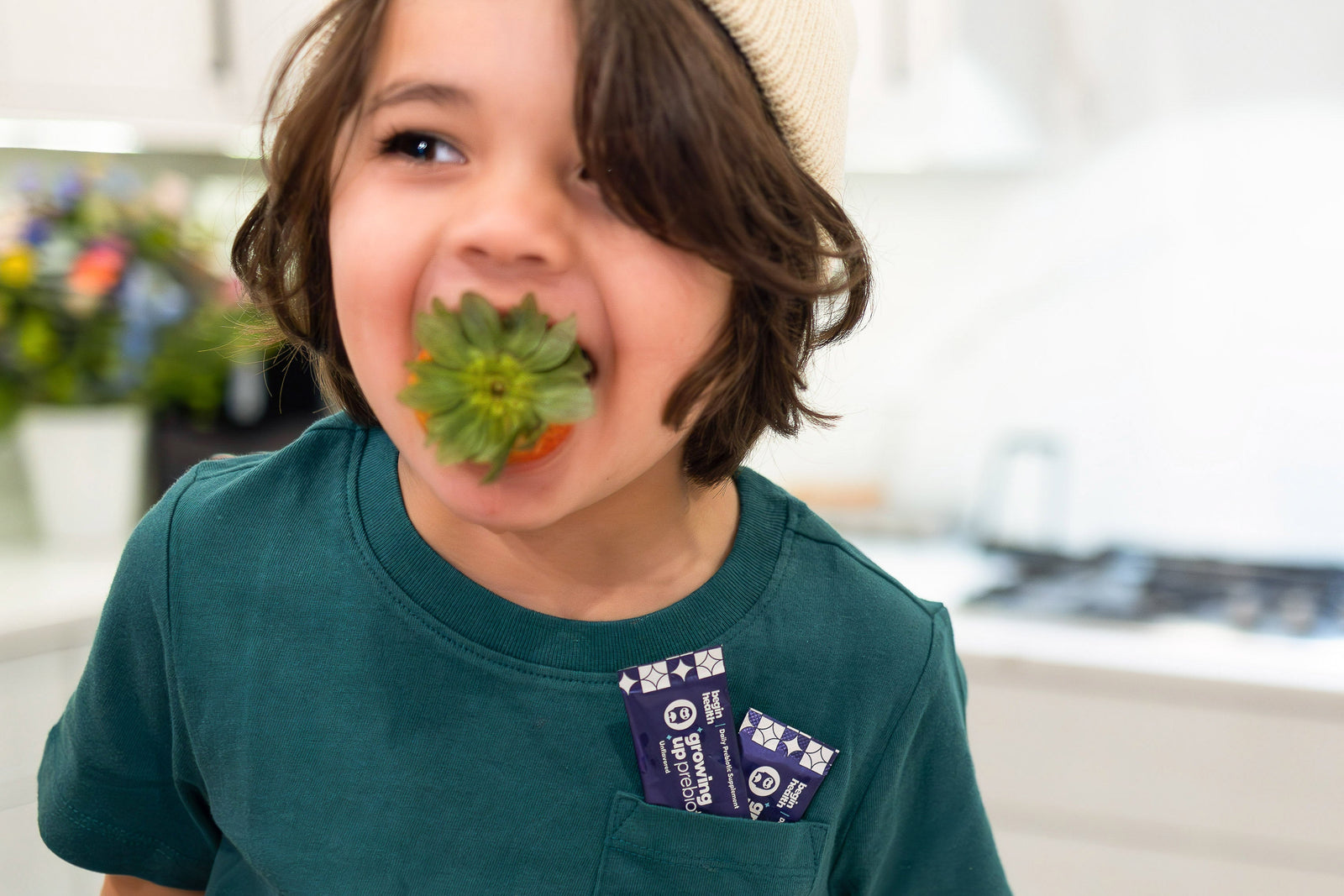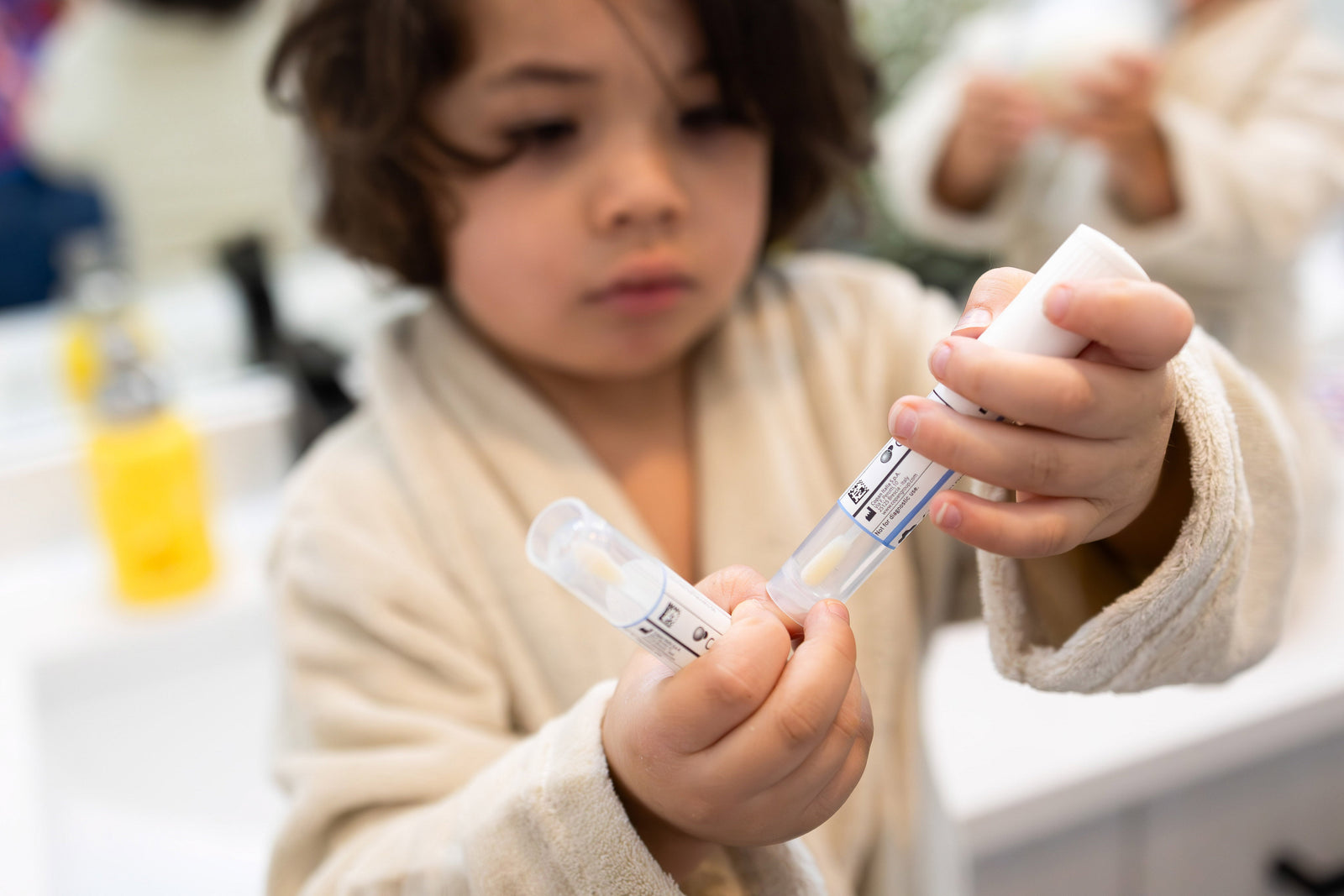Your Cart is Empty
Continue shoppingHow to Increase Gut Microbiome Diversity in Kids
Medically Reviewed by May Zhu, RDN | Published May 29, 2024
share this article

The gut microbiome, composed of trillions of microorganisms, plays a crucial role in the overall health and well-being of little ones. A diverse gut microbiome is associated with better digestion, immune function, and mental health. In this blog, we’ll explore a few effective strategies to increase gut microbiome diversity in kids.
What is Gut Microbiome Diversity?
Gut microbiome diversity refers to the variety and abundance of different microorganisms residing in the digestive tract. A diverse microbiome is essential for maintaining a balanced ecosystem within the gut, which contributes to optimal health outcomes for kiddos.
Daily reads to help your little ones lead happier and healthier lives.
Buy Now
Join the
Happy Gut Club
Strategies to Increase Gut Microbiome Diversity
-
Dietary Fiber: Incorporating a variety of fiber-rich foods into a kid's diet is crucial for promoting gut microbiome diversity. Fiber acts as fuel for beneficial gut bacteria, helping them thrive and multiply. A study published in theJournal of Nutrition found that increasing dietary fiber intake positively influenced gut microbiota diversity in kids, leading to improved overall health [1].
-
Probiotic Foods: Probiotics are live bacteria and yeasts that provide health benefits when consumed in adequate amounts. Foods like yogurt, kefir, and fermented vegetables contain probiotics that can help enhance gut microbiome diversity. Research in theEuropean Journal of Nutrition demonstrated that regular consumption of probiotic-rich foods positively influenced gut microbiota composition and diversity in children [2].
-
Prebiotic Foods: Prebiotics are non-digestible fibers that serve as food for beneficial gut bacteria. Foods such as bananas, onions, garlic, and whole grains are rich in prebiotics and can support the growth of beneficial gut bacteria. A study inGut Microbes highlighted the importance of prebiotics in promoting gut microbiome diversity and improving digestive health in kids [3].
-
Variety of Fruits and Vegetables: Encouraging little ones to consume a diverse range of fruits and vegetables provides them with a wide array of nutrients and fiber that support gut health. Research published inFrontiers in Immunology emphasized the role of plant-based diets in promoting gut microbiome diversity and enhancing immune function in children [4].
-
Limiting Processed Foods and Sugar: Processed foods and excessive sugar intake can negatively impact gut microbiome diversity by promoting the growth of harmful bacteria. Limiting the consumption of these foods and opting for whole, unprocessed foods can help maintain a healthy balance of gut bacteria. A study inNature revealed that high-sugar diets alter gut microbiota composition and reduce microbial diversity, potentially leading to various health issues in kids [5].
Summary
Increasing gut microbiome diversity in kids is essential for promoting overall health and well-being. Strategies such as incorporating dietary fiber, probiotic and prebiotic foods, a variety of fruits and vegetables, and limiting processed foods and sugar intake can help achieve optimal gut microbiome diversity in kiddos, leading to improved digestion, immune function, and overall health.

Author
May Zhu, RDN
Trending

Why Parents Are Choosing Prebiotics Over Stool Softeners for Kids
read now
Inc. Names Begin Health to Its 2025 List of the Fastest-Growing Private Companies in the Midwest
read now
Oxalates and Kids' Digestion: How High-Oxalate Foods Contribute to Constipation and Gut Discomfort
read now






